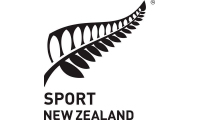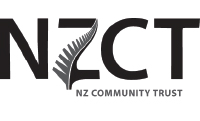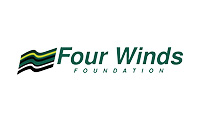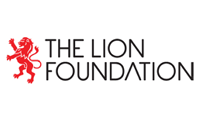We acknowledge the mana whenua of our region; Te Ati Awa, Ngāti Toa Rangatira, Rangitane o Wairarapa, Te Atiawa /Taranaki Whānuiki te Upoko o te Ika, Ngāti Kahungunu ki Whakarongotai, and Te Atiawa ki Whakarongotai. We have a long way to go in fully understanding their role in this region, however we are fully committed to the Treaty and wish to build authentic partnerships with mana whenua, starting with hui and discussion through to changes within our Trust deed and continuing this commitment through to our operations.
We have taken deliberate steps to formally acknowledge our commitment to te ao Māori and Te Tiriti o Waitangi as an organisation. In March 2020, the Board adopted a Te Tiriti o Waitangi Policy (organisational policy) acknowledging the three principles of partnership, participation, and protection in Te Tiriti o Waitangi and how these principals influence how our organisation is governed and operated.
The Board also approved an amendment to our original Trust Deed with the addition of a clause acknowledging Te Tiriti o Waitangi and a commitment to making it “visible and real in our community, region and embedded within our organisation.”
We are working hard to continuously challenge ourselves to grow our cultural confidence as an organisation, and to create a safe environment for individuals on their own personal cultural competency journeys. Significant effort is being put into building our understanding and appreciation of te ao Māori internally through:
- Whakatau
- Mihi/Pepeha
- Karakia
- Waiata
- Haka
- Staff completing two Te Tiriti o Waitangi workshops
- Developing a Māori Language Pocket Guide
- Incorporating traditional games/activities at full staff meetings
As an organisation we aim to improve not only our internal knowledge but to develop a deep understanding of why these are important to mana whenua.

On our journey:
Dayle Clarkson, Iwi and Wairarapa Partnership Manager
“Our Māori Cultural competency journey has allowed the organisation to learn, grow, explore and develop our understanding of the principles of the Tiriti o Waitangi. Mana whenua is an important part of the communities we work in and we have much to learn from the value they place on whānau wellbeing. Our use of karakia Tuia ki runga, (Tuia meaning to Stitch together) has taught us much about the many places we can draw learnings from and our connection to mana whenua will help us on our journey. The sharing of their stories and passion, illustrates whakapepeha, mana whenua have for their taonga.”
Apanui Heemi, Healthy Active Learning Advisor
“Nuku Ora is the first organisation I have joined that welcomes new staff with a whakatau. I think it is great way to be introduced into an organisation and create connections with other staff members. The important part is understanding the why we do it as an organisation and as we go through, it’s really good that the speakers explain what they are saying, so that everyone understands what is being said and why we say it. It’s also a great opportunity and safe place to practice your mihi and whaikorero.”
John Grieve, Event Director
“Prior to starting my role at Nuku Ora my understanding of Māori culture was very limited. Coming from Scotland, my only exposure to Haka was watching the All Blacks on TV. Thanks to the Māori Action Planning Group at Nuku Ora, I’ve been able to attend workshops that have explained the meaning behind Haka and provided a safe space to practice in a group-setting.”
Anya Hape, Programme Advisor - Hutt Valley and Wairarapa (Ngāi Tūhoe, Te Whakatōhea, Te Ātiawa, Taranaki)
“When I think about our journey to date, it shapes for an exciting future. Whakatau, waiata and karakia, whaikorero, harirū are some of the tikanga we have adopted and provided staff with opportunity to ‘fill their kete’. Moving forward, I would like to see us not only continue to normalise tikanga Māori practices within the office and when engaging with external stakeholders, but, to see such practices have a permanent presence at a level that talks to how we act and operate as an organisation. Kaupapa Māori principles/philosophies resonate with the holistic space in which we work in. Allowing these same principles/philosophies to underpin our operational strategies is a bold step that we are now equipped to take.”









